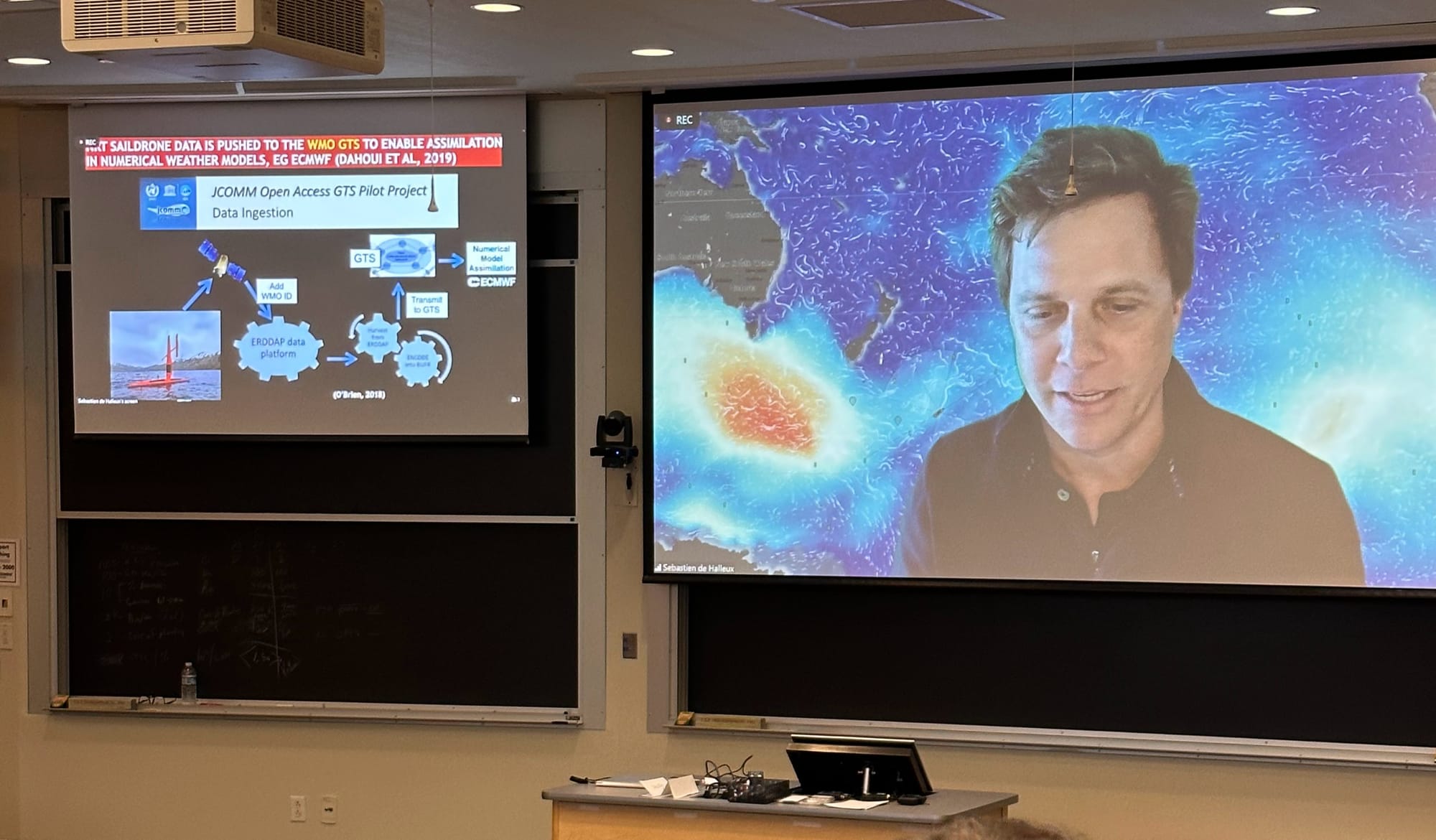Intro
If you're building a startup to save the oceans, today is the last day to apply for an Ocean MBA program at MIT (if you missed the deadline, still give it a try) organised by Propeller Ventures.
Disclaimer: not a sponsored post, just sharing my experience. Also you can read my raw notes I took during the event on Github (most likely make sense only to me).
At the beginning of 2023 I left Google X, where I worked on AI research for bees and pest management, and started my journey in building a startup applying AI for ocean health (more in linkedin, github, site).
I was lucky to get accepted and being able to attend the program last year (thanks Filippo Varani for sharing it with me). This was one of the brightest events in my startup journey. I learned so much there and met a lot of amazing people!
How it looks like?
You go to Boston and enjoy a three day super intense workshop at MIT Sloan School of Management. There were 20+ startups last year of different stages (pre-seed, seed, A).

- Learning materials: as a software engineer, I don't really have experience in the business side of things. So the lectures were very relevant for me and covered a broad range of topics like:
- how to do case studies and acquire customers,
- which business models exist out there,
- how to find right product-market fit,
- different types of marketing,
- how to incorporate (e.g. is a c-corp in Delaware and LTD subsidiary in the UK is a right choice for me),
- how to build a right culture, etc.
- Practice: theory doesn't really matter if you never apply it in practice. What I really enjoyed was that every lecture had a practical part where you try apply new learnings for your own startup. This helped me to move forward so much further!
- Mentors: almost half the people in the audience were mentors. This was my favourite part! You're not just thinking on your own. Someone with a lot of experience helps you to solve your problems. It felt really good!
- Example: I was stuck in my thinking, not knowing how to move forward with my business model (as it's not trivial, and I was thinking I should prob do a non-profit instead of a startup). So the director of finance at HubSpot was like "Hey Sergei, why are you picking your nose, let me help you!" (the exact wording was different haha). So he helped me brainstorming my business models and come up with a really good beachhead market (I never heard of that term before). Since that moment I gained a lot of confidence that I could actually make a good business out of my idea (it's really tricky to monetise biodiversity) and it keeps me going!
Hi Ocean MBA organisers, if you're reading this, please keep the practical part of the workshop and keep the same ratio of mentors! That was golden!
So, you get to hang out with a lot of amazing people in formal and informal parts of the event. At the end you have a part where you can pitch your idea to a bunch of investors and raise money (I missed that part as I had to go back to the UK for a friend's wedding). I wish all VC funds organise these kind of events! This was definitely a top level!
Learnings
There was so many helpful things (which might be relevant to me), so I'll try sharing three of my favourite talks!
(1) Culture as a product
"What could be more boring and useless than culture?" I was thinking while doing a corporate culture training at Google 8 years ago for the first time. After experiencing different types of culture at Intel, Google, Google X, other places, and trying to improve it myself within my team or in our freediving club that we created, I realised how deeply wrong I was. This is one of the most important things for the company ever, if not the most important!
If you're an engineer, it's not clear how to approach such a fuzzy topic like building a corporate culture. So I was mind blown by Dharmesh Shah's (HubSpot CTO) take on it, and now I want to do exactly the same for my company (with bits of Google X culture).

He was also a bit lost when Brian Halligan (HubSpot CEO) made him responsible for the company's culture (it doesn't feel like engineers are the best people for that). Long story short, Dharmesh came up with a genius idea:
Treat culture as a product, where employees are users of that product
Just like you attracting people with your product, same way you attract your team with your culture, so culture is a product, employees are customers of the product. What features they want? What bugs they found? Basically treat it like a product feedback session.
Same way as you have a source code for your product, you could have a culture code. They published on their website up to date version of their culture code. This way you can filter out people who apply, also "Internet is very good at telling you why you're an idiot."
His recruiting pitch to bring passionate people also stuck in my mind: "if you have a burning urge to create a company - you go do that, if you have a burning entrepreneurial drive, but you don't know your idea yet, come join us, it would be like a mini MBA, you can learn from it".
Lastly, transparency matters a lot. And people value transparency - e.g. at HubSpot people know company burn rate and everyone's salary. This way they built one of the world’s best places to work!
Wanna be like Dharmesh when I grow up!
(2) Saildrone Story
I haven't heard of Saildrone before. They are one of my favourite ocean startups now!

Sebastien de Halleux, Saildrone COO – btw he looked a bit like Mark Hamill / Luke Skywalker – gave a super inspiring talk about the company.

Many things resonated with me during the talk. What I found super valuable, is his success formula for different types of business:
- scaling products = creating hits –
success = f(price, quantity) - scaling products = nurturing hits –
success = f(distribution, aggregation, monetization) - scaling data = exploding dimensions
success = f(utility, space, frequency, time, resolution, quality, exclusivity, security)- if you improve any of these, you have success; the variables are independent.
Saildrone now building a data platform (so do my startup), so a lot of great ideas there! He also recommended the "Billion–Dollar Fish – The Untold Story of Alaska Pollock" book about how economic zones emerged.
(3) In-depth case studies of HubSpot
I also learned a lot of lessons from Brian Halligan (HubSpot CEO). There was multiple talks about how pick the path to becoming a narwhal. In-depth case studies of HubSpot were super helpful!
One of them most common reason why startups fail is disagreement between founders. Here's a lesson that stuck with me the most: "e.g. you have two co-founders, if both disagree and one is strongly disagreed, but another is OK to stay on the rails, in that case they're doing the way of the strongly disagreed person. If both strongly disagree, then e.g. CEO decides. You need to come up with these kind of rules in advance."
These were super fruitful three days! So many lessons. I'm pretty sure you'd find something interest for you. If you're doing ocean related startup, I'd strongly recommend going (it's free)! Huge thanks to Reece, Jake, Caroline, Brian, Steven Fox (and many many others) for such an amazing experience, that's a very high bar!
You can see my raw notes on Github.
Please help me improve my writing 🙏


